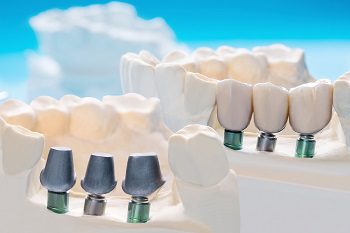Advantages and Disadvantages of Fixed Bridges
Dental Implants Solutions
Fixed bridges are permanent appliances to restore missing teeth. They are the best alternatives to partial dentures, where they serve both practical and aesthetic purposes. It is always good to weigh their advantages and disadvantages before going for the treatment to make an optimal decision. In this article, we will discuss the advantages and drawbacks of fixed bridges for your enlightenment.
Advantages:
There are numerous positive effects of fixed bridges. Here, we will focus on the top 5 advantages that these fixed bridges provide.
Offers a Cost-effective Solution.
Fixed bridges provide a cost-effective solution to replace missing teeth without invasive surgeries. They help distribute the forces in your bite and prevent the remaining teeth from shifting.

Fills in the Gap.
Fixed bridges fill the gap in the jaw, and the patient can eat and chew comfortably. It also fills the gap in the mouth caused by missing teeth which otherwise might alter the placement of the tongue. So, they also help patients speak with ease and without making any sounds in the mouth.
Minimizes the risk of bone loss.
Fixed bridges help maintain the facial structure by minimizing the risk of bone loss. They also help prevent adjacent teeth from moving into the space, creating problems with your bite and leading to other potential risks.
Easy to maintain.
Fixed bridges are easy to maintain and super comfortable. At the start, it takes time to get adjusted to the fixed bridges. However, within a week or so, the patient becomes adapted to these as they become part of the mouth. You’ll require a soft-bristled toothbrush to care for it. Also, do not forget to floss and avoid chewing the complex substances.
Aids in Chewing and Speaking.
The fixed bridges aid in restoring chewing ability and helping patients speak and smile with confidence. In the beginning, you might become a little sensitive to hot or cold drinks and foods, but with time, the fixed bridges function just like natural teeth.
Disadvantages:
Besides several advantages, fixed bridges have a few drawbacks as well. For instance:

Risk of Decay.
The healthy abutment teeth which hold the bridge might become damaged in some cases. So, there can be a risk of decay which might allow bacteria or plaque to settle underneath.
When the supporting teeth have insufficient strength.
In some cases, the supporting abutment teeth might become incapable of holding the bridge. It can lead the bridge to collapse, and the patient must undergo invasive dental implant surgeries.
Final Thoughts
On average, the success rate of fixed bridges is around 94.3%. They are considered an excellent restorative treatment for missing teeth, especially if one cannot opt for dental implants. From maintaining the face structure to reducing the risk of bone loss, fixed bridges are good to consider. If you have missing teeth and want to gain the benefits of fixed bridges, consult your dentist at your earliest.
Contact your Walnut Creek dentist, Massood Darvishzadeh, DDS at Dental Implant Solutions to learn more about Fixed Bridges.
Resource:
Pros and Cons of Dental Bridges
*Neither this nor any other content in this media is meant to prescribe, recommend, or prevent any treatment or procedure. We highly recommend that you get the advice of a qualified dentist or other medical practitioners regarding your specific dental condition.
Subscribe To Our Newsletter
Get Updates And Learn From The Best
More To Explore



CONTACT US
Massood Darvishzadeh, DDS
2021 Mt Diablo Blvd., Suite 100A
Walnut Creek, CA 94596
(925) 939-2600info@dentalimplantsolutions.net